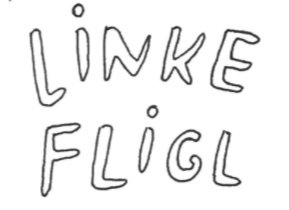Zines
ki li ha’aretz
A Zine series on reparations & home(coming) in jewish diaspora
Ki Li Ha’aretz has published over 40 queer and trans Jewish artists, writers and ritualists in two editions, Ushpi(zine), published in October 2021, and Mother Tongue, published in July 2021. We hope that this zine series can be a tribute to the creative and deep resilience of our communities, to those who came before us and to the generations to come. Hardcopies are available for purchase at pushcartjudaica.com, along with digital downloads!
ushpi(zine) sukkot zine & ritual guide
ki li ha’aretz vol. 1
This compilation features work from an incredible group of more than 20 writers, artists and ritualists.
In these pages, you are invited to find words that move you and stories that see you. Find guidance for bringing the kavanah (intention) and kedusha (holiness) of this holiday into your practice through poems, liturgies, prayers, self guided rituals, art and writings that wrestle with ideas of sukkot, home, land, people, belonging and this political moment. Celebrate Sukkot on the land where you live. Build a kleyneh (tiny) sukkaleh. Write your love letter to the queer Jewish diaspora. Learn Birkas Kohanim (the Priestly Blessing). Find belonging in the searching & find prayer in the silence.
mother tongue
ki li ha’aretz vol. 2
Mother Tongue is a compilation of art, writing, prayers and questions from 28 queer Jews on the themes of repair, home and belonging in Jewish diasporas. It is 76 pages long and includes writing in 9 languages. Below is an excerpt from editor Zuriel Biran Hurst’s preface to this collection.
A Black, bisexual, transgender, Disabled, working-poor and Anti-Zionist Jew is writing this Editors’ Note. And this is important for you, dear Reader, to know. Not because I am taking this opportunity to self-aggrandize, but because I want you to engage with this work knowing that clarity is important. Our identities and their intersections - as Kimberlé Crenshaw, JD, LL.M. wrote - are deeply, deeply, important, never inconsequential.
It has been an honor to witness your stories, your visual art, your poems, your genre-defying testaments to memory. A “mixed multitude” from our mythic trek away from Mitzrayim (Bondage), we have never been a monolithic people with a monotonous narrative. While Imperialism has sought to ravage the planet we call home, we at Linke Fligl choose to center the voices and experiences of Black and Indigenous Jews. We present the following collection as an active attempt at righting the wrongs of Ashkenormativity and yt supremacy.
More on this zine series
LF is a community land project founded in the vision of diasporism, inherited from the writings of Melanie Kaye Kantrowitz (z”l). Diasporism is a framework that holds us in the deeply reverent and complex stories of Jewish relationship to land. We are a people with agricultural and nomadic roots; some of us are indigenous to where we live, some are refugees, some were kidnapped and brought here against our will and some are descendants of immigrants. We carry histories of displacement, annihilation, exile, as well as participation in the ongoing settling and colonization of indigenous land.
The legacies of a place are as much a part of its ecology as its native plants, climates and physical landscapes. As Robin Wall Kimmerer says, “To love a place is not enough. We must find ways to heal it.” Ki li ha’aretz, an excerpt from the Torah verse that inspired the title of this series, translates as “for the Land is Mine,” a reminder from the Divine that all land is sacred, beyond human colonization and ownership. The full text reads:
וְהָאָ֗רֶץ לֹ֤א תִמָּכֵר֙ לִצְמִתֻ֔ת כִּי־לִ֖י הָאָ֑רֶץ כִּֽי־גֵרִ֧ים וְתוֹשָׁבִ֛ים אַתֶּ֖ם עִמָּדִֽי
V’ha’aretz lo timacher lizmitut, ki li ha’aretz, ki gerim v’toshavim atem imadi
And the land will not be sold forever, for the land is Mine; you are but strangers, temporary dwellers with Me.
(Vayikra 25:23)
We know that individual and collective healing without land is impossible. We need land to live, and we must do the work to reconcile our past and current realities to imagine a different diasporic land-based future.
Diasporism offers a path to that future, one of teshuvah (return) and remembering. This path requires reckoning with the imagined and sacred space of Eretz Yisrael, the modern nation-state of Israel and the occupation of Palestine. It requires reparations for histories of enslavement, genocide and systemic oppression of Black and Native communities.
How can we find right relationship with land where we are, given our divergent histories and experiences of how we got here? How can we reconcile these histories with what is needed and possible now? What does our tradition teach us? What is your lineage? What is your story? How are you wrestling with the very personal questions of your relationship to the land(s) you call home?











